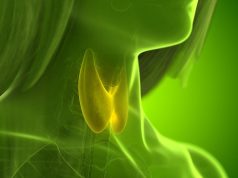Higher maternal PFAS exposure linked to poorer semen quality in male offspring in young adulthood
MONDAY, Oct. 17, 2022 (HealthDay News) — There is a consistent inverse association between maternal exposure to perfluoroalkyl and polyfluoroalkyl substances (PFAS) and semen quality in young adult male offspring, according to a study published online Oct. 5 in Environmental Health Perspectives.
Katia Keglberg Hærvig, Ph.D., from Copenhagen University Hospital-Bispebjerg and Frederiksberg in Denmark, and colleagues examined associations between maternal plasma PFAS levels during early pregnancy and male offspring reproductive function in adulthood. The analysis included 864 young men and first-trimester samples from their mothers.
The researchers found that for a 1-unit increase in the weighted quantile sum index, combined maternal PFAS exposure was associated with lower sperm concentration, lower total sperm count, and a higher proportion of nonprogressive and immotile sperm in the young men. There was variance noted in the strength of associations for different PFAS; however, perfluoroheptanoic acid was identified as the main contributor in the analyses of all three outcomes despite the low concentration. There was no association between exposure to maternal PFAS and testicular volume or reproductive hormones.
“A man’s reproductive capacity is largely defined in the first trimester of pregnancy when the testicles are developed,” a coauthor said in a statement. “It makes sense that exposure to substances that mimic and interfere with the hormones involved in this delicate process can disrupt normal development and have consequences for semen quality later in life.”
One author disclosed financial ties to the pharmaceutical industry.
Copyright © 2022 HealthDay. All rights reserved.








